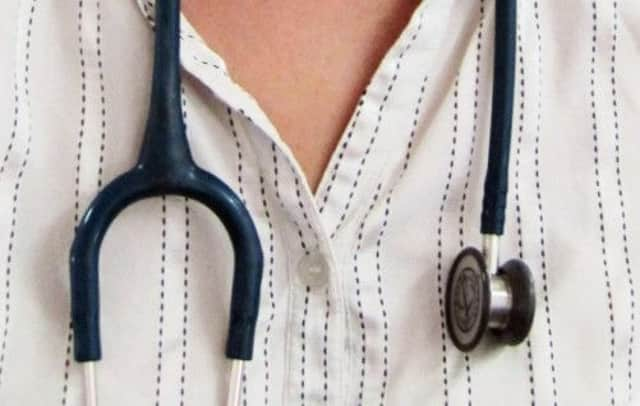Scots increase in cases of ‘slapped cheek’ virus


Health Protection Scotland (HPS) said cases of parvovirus B19 - more commonly known as “slapped cheek” disease - were now significantly higher than at the same point in previous years.
The body warned health staff and the public to be aware of the increase due to the risks posed to pregnant women and others in at-risk groups.
Advertisement
Hide AdAdvertisement
Hide AdParvovirus is a common childhood illness and is usually mild, causing a fever and a bright red rash on the cheeks, leading to its “slapped cheek” label.
But it can cause more serious problems in some patients, particularly those with certain blood disorders and women in the first 20 weeks of pregnancy.
In pregnant women, it can cause a condition known as hydrops fetalis, where abnormal amounts of fluid collect in the baby’s body, and can also lead to the baby’s death.
HPS said: “For this reason, an observed increase in provirus B19 activity in Scotland warrants increased vigilance by clinicians and awareness of the relevant information and guidance on diagnosis and management of infection.”
The figures showed there were 116 lab confirmed cases of parvovirus in the first 12 weeks of this year, including 66 in women of child-bearing age - classed as between 17 and 44 years old.
This compared to 20 cases in total during the same period last year, including 12 in women aged 17-44.
This year cases of parvovirus are more than five times higher than the average for the first 12 weeks in the previous five years.
Increases in the illness are seen on a three to four year cycle in the UK, with the last rise in cases in Scotland seen in 2009.
Advertisement
Hide AdAdvertisement
Hide AdUnlike some other diseases, doctors do not report cases of parvovirus based on symptoms alone, meaning all figures are based on actual cases confirmed by the lab. Many more cases will go unreported in the community.
Dr Jim McMenamin, consultant epidemiologist at HPS, said when cases of the illness peaked varied, but was usually in the spring or summer.
He said that highlighting the increase in the infection was important so that individuals who are at increased risk can be followed up by their specialist, such as they midwife, obstetrician or haematologist.
It also means people can be made aware of their infection to allow them to consider whether they need to take steps to limit their contact with patients with symptoms.
“For women who are pregnant, this would be an important issue for them to discuss with their GP or obstetrician,” Dr McMenamin said.
“In the main this infection is something that you recover from. But it can be a concern in a small number of people who have problems with how they produce haemoglobin.”
The expert said these people would be under the care of a specialist who could advise when treatment was needed to combat the infection, such as a blood transfusion.
In pregnant women, he said a major risk was the death of the foetus. Again, with careful monitoring complications in the baby could be identified and treated, such as a blood transfusion while the baby is still in the womb.
Advertisement
Hide AdAdvertisement
Hide Ad“That is why it is important, not just for the general public to be aware of this increase, but also for health professionals to be aware,” Dr McMenanmin said.
Dr McMenamin said previous peaks in cases had been seen in 1994, 1998 and 2003, before the last rise in 2009 and the current high number of cases.